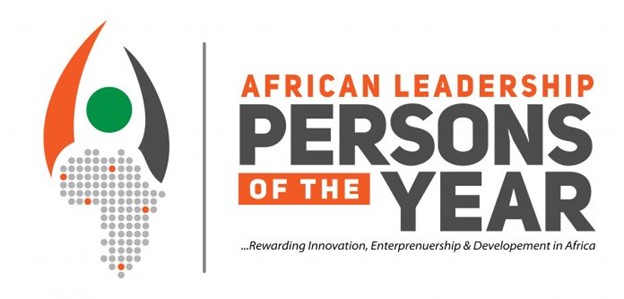The economic state of Djibouti has made it necessary for this nation to strengthen its trade ties beyond Ethiopia, its major partner. A bold step to take advantage of its strategic location has been its greatest strength in a sea of opportunities to flood the land of Djibouti.
DJIBOUTI’S STRATEGIC POSITIONING
 Although Djibouti is one of the smallest countries in Africa, its strategic geographical location, that is between Africa, Asia and Europe, and its historical links, have served as its advantage, making it a natural investment destination and a centre for global trade.
Although Djibouti is one of the smallest countries in Africa, its strategic geographical location, that is between Africa, Asia and Europe, and its historical links, have served as its advantage, making it a natural investment destination and a centre for global trade.
Djibouti is located at the confluence of the Red Sea and the Indian Ocean. Its historical associations with Europe, the Arabian Peninsula, East Africa and Asia make it a unique crossroads for international culture and trade.
To become a global trade hub, the government of Djibouti put together Djibouti Vision 2035 and is working towards making it a reality. Djibouti Vision 2035 is its flagship national development blueprint for transforming the country into a middle-income economy as well as a regional transport and logistic hub. This has been one crucial decision made by the government for its economic growth. Due to diverse business opportunities in Djibouti, Africa is expected to experience the strongest growth in the gross domestic product (GDP) this year, as projected by the World Bank’s global economic prospects report. In 2020, the country’s growth remained positive at 0.5% after the recovery of key domestic markets. In 2021, the output growth in Djibouti was expected to reach 5.5% and an average of 6.1% a year in 2022 and 2023, which is positive and proves progress.
Between 2016 and 2021, Djibouti Vision 2035 has chalked a great deal of success in various fields, making Djibouti a bedrock of business opportunities. For example, there has been the development of a first-rate ecosystem and a new railway line to Addis Ababa in 2016; the commission of the Doraleh Multipurpose Port in 2017 and 2018; the building of mineral ports in Ghoubet and Tadjourah in 2017; the creation of the Djibouti International Free Trade Zone in 2018; an agreement between Air Djibouti and Ethiopian Airlines and the port of Djibouti January 2021; and a $350 million agreement with the China Merchants Group to re-develop the old Port of Djibouti in 2021. Other areas being developed include the tourism sector; fishing, including untapped marine resources and artisanal fishing; an undersea telecommunications infrastructure; new digital and service industries; geothermal, solar and eolian energy.
For example, Djibouti’s development in transport by improving and expanding infrastructure and transport networks has gradually boosted its commerce. Although Djibouti’s ports are among the most sophisticated in the world, it is envisioned that trade through these ports will rapidly grow as the country’s economy expands with its main trading partner, Ethiopia.
Djibouti Ports
 Djibouti’s investment climate has improved over the years. Trade policy reviews, reforms and regulations undertaken in Djibouti have aided in its progress in the business and economic world. Djibouti launched legislative reforms; simplified its investment regime for all investors; implemented various trade facilitation measures, including the modernization and digitization of its customs system and port communities; and established a standards and technical regulations agency.
Djibouti’s investment climate has improved over the years. Trade policy reviews, reforms and regulations undertaken in Djibouti have aided in its progress in the business and economic world. Djibouti launched legislative reforms; simplified its investment regime for all investors; implemented various trade facilitation measures, including the modernization and digitization of its customs system and port communities; and established a standards and technical regulations agency.
For example, Djibouti recognizes the essential need for foreign investment to stimulate economic development. Therefore, its foreign investors are encouraged to invest, which makes it an ideal investment and commerce hub. Investors are ensured of 100 per cent foreign ownership in the private sector. Djibouti’s priority sectors for investment include transport and logistics, financial services, energy, and tourism. Although its top investments are in logistics and warehouse as well as salt, there are opportunities in agriculture, animal production, food processing, manufacturing, hospitality and construction. This nation has been blessed with few natural resources such as salt, petroleum, gold, and diatomite.
Djibouti International Free Trade Zone
 Also, other ways it attracted its investors include revisions of its Free Trade Zones, adoption of a new commercial code, and increased investment in infrastructure.
Also, other ways it attracted its investors include revisions of its Free Trade Zones, adoption of a new commercial code, and increased investment in infrastructure.
Djibouti also offers significant incentives to private-sector individuals and corporate investors. To explore the petroleum field, Djibouti’s location on the Great Rift Valley is a great advantage for its Geothermal energy. In agriculture, although Djibouti’s climate does not favour farming, its has access to marine resources, including fish stocks; hence venturing into fisheries projects and businesses are potential areas to explore.
Djibouti is home to business opportunities for many nations globally. Its investment, reviews, reforms and regulations over the past years have made Djibouti an attractive area for exploring business opportunities and a location that has a lot to offer to many in commerce.


